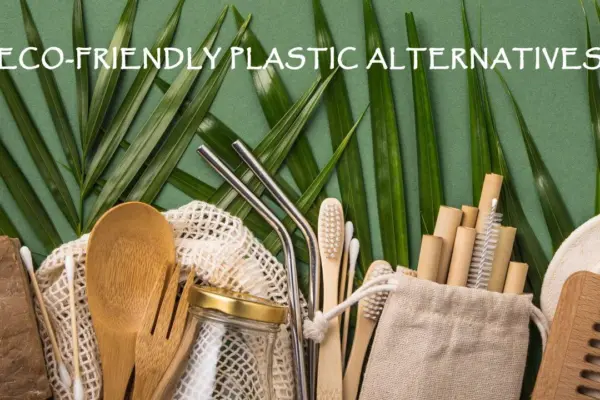‘Safai Bank of India’ Prevents Plastic Wrappers from Entering the Landfills
Whilst India is thriving to become a plastic-free country, a Mumbai-based NGO Mumbai Sustainability Centre (MSC) has been collecting plastic wrappers through a unique initiative called the ‘Safai Bank of India’. With a goal to prevent plastic waste from ending up in landfills, the Safai Bank has been collecting plastic wrappers and packaging material.
Rishi Agarwal, an environmentalist in Mumbai founded the MSC and started the initiative in 2018, with an aim to divert millions of plastic wrappers from reaching the city’s dumping grounds and landfills. It has now expanded to various other parts of the country including Delhi and National Capital Region (NCR).
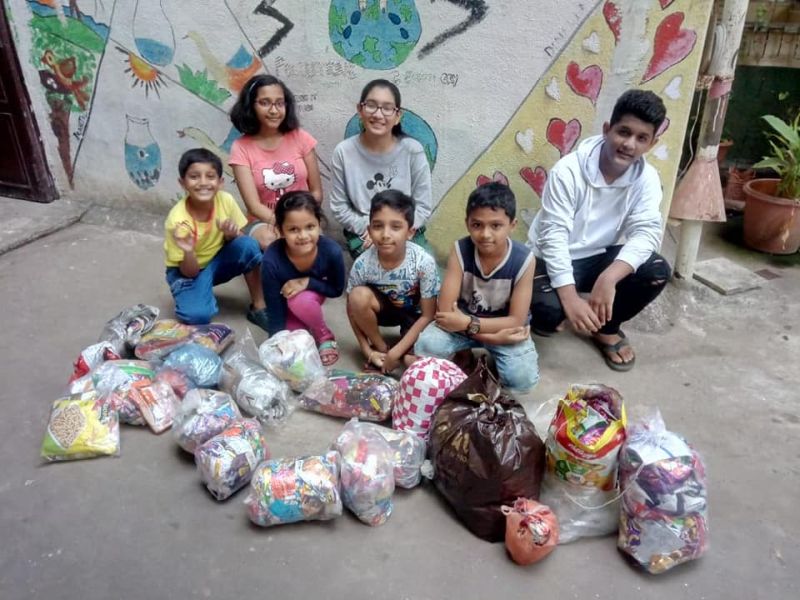
Children have been contributing a lot to the noble cause / Image: Facebook @Safai Bank of India
Talking about this unique initiative, Rishi said,
I have a long association with the subject of waste management. Right after I finished college, I started working on environmental issues like saving the mangrove forest in Mumbai, waste segregation, and air pollution among other issues. As part of my work, I used to visit landfills and dumping yard frequently. After looking at the waste crisis facing our cities, plastic waste and waste management became core areas of my focus.
He further emphasized that,
I believe that waste management is the easiest thing that can be done to save the environment from the adverse impacts of the growing waste on the planet. It just needs a little effort and will. To tackle the issue of waste and plastic, I started ‘Safai Bank of India’ in 2018.
The Safai Bank of India entails collection points at schools, colleges, commercial complexes and residential areas. People can deposit plastic wrappers at these collection points. Any individual devoted to a clean environment can become an account holder at this bank and operate a collection point at their home or any other space. Option to open a new branch or become a coordinator at the bank is also available.
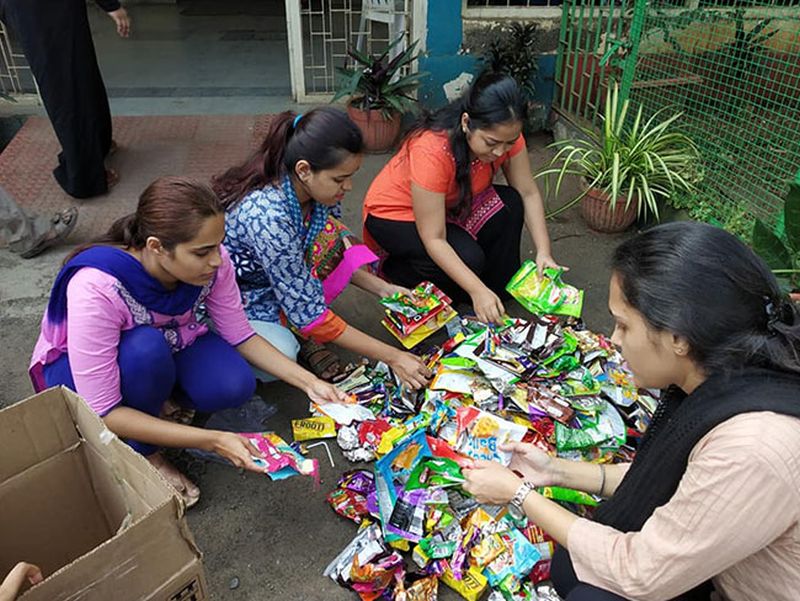
The collected plastic is sent to recycling companies / Image: Facebook @Safai Bank of India
Safai bank currently has 186 branches across the country, 415 account holders and 164 bank coordinates. Through all the branches, the bank has prevented over 22 lakh wrappers and packets from entering the landfills.
Once the waste is accumulated at a branch, it is sent to recycling companies that have collaborated with the bank. The recycling companies deliver the non-recyclable plastic waste to cement companies for incineration in the cement kilns.
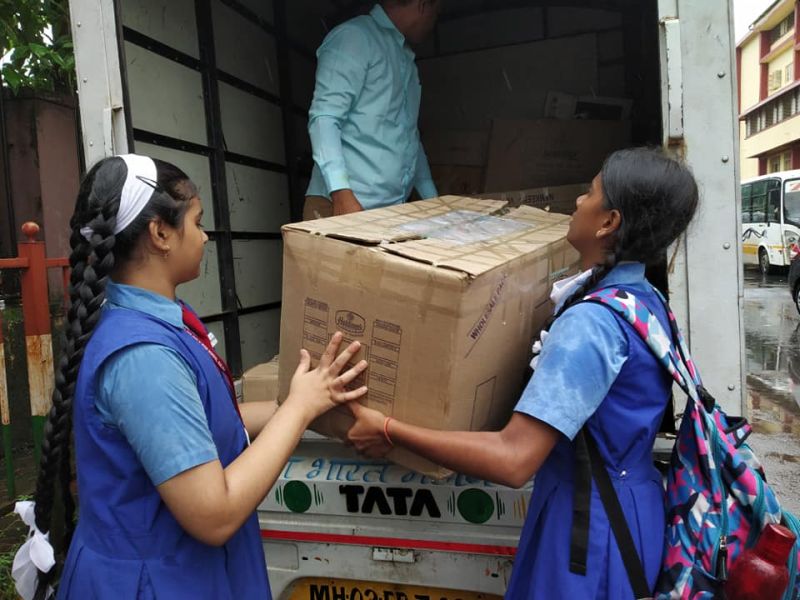
Children helping load a package of plastic waste / Image: Facebook @Safai Bank of India
According to Mr. Agarwal, most consumer goods are wrapped in multi-layered non-recyclable plastic and therefore, are sent to cement companies that burn these wrappers in the cement kiln in a controlled environment at a temperature more than 1500 degree Celsius.
Also Read: Dehradun Students Fight Single-Use Plastic with ‘Plastic Wapsi Abhiyan’
The method reduces the chances of air pollution as at such high temperature, plastic loses its hydrocarbons and other impurities leaving no residues behind. No harmful gases, which usually are produced in a dumping ground, are produced that can result in hormonal imbalance in humans and cancer.
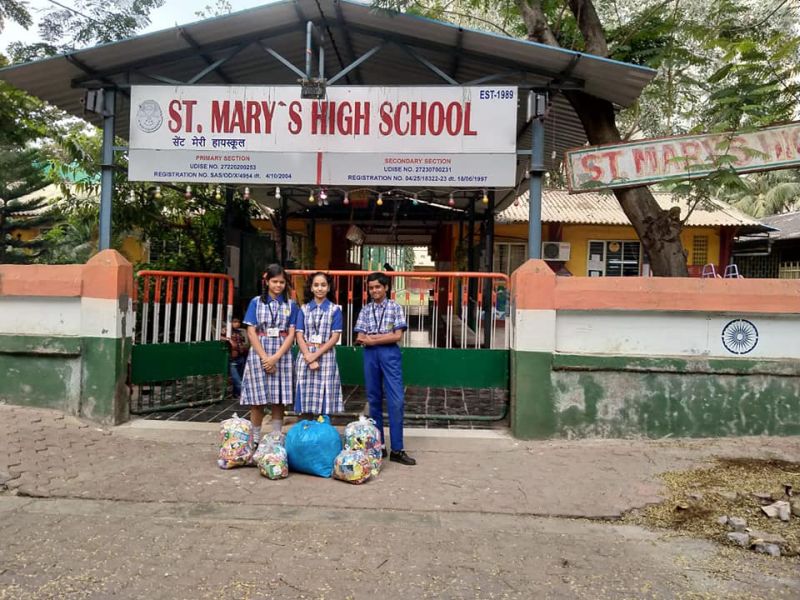
School children with their plastic wrapper deposits / Image: Facebook @Safai Bank of India
Mr. Agarwal also revealed that the bank only take deposits of plastic wrappers, it does not give the depositor anything in return except the satisfaction of disposing of the plastic waste. The bank currently takes deposits of multi-layered plastics only.
He believes that as the motive of the initiative is to discourage the use of plastic, but giving an incentive to the users could backfire as the use of plastic could increase.
Via: NDTV
